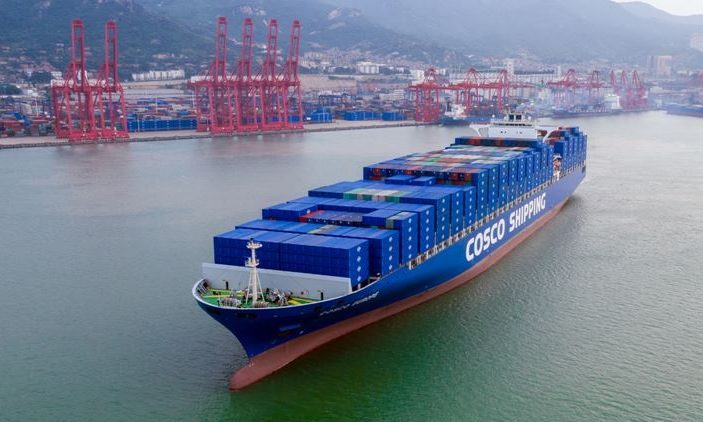East and West, but always just in time

Twenty-five years ago, people remarked that about 40% of the world merchant fleet was owned in Asia. No-one finds anything remarkable in most of the world’s merchant ships being owned, financed, manned, managed, designed, and built in East Asia, today. People are starting to remark on the number of ships still owned and managed in Europe. Singapore and Shanghai have replaced London. The rise and rise of Asian and particularly East Asian shipowning is a phenomenon, but it has become the new normal, so we don’t notice. We notice the continuing vigour of Greek shipowning in bulkers and tankers and the importance of the big European liner companies because we now find this surprising.
There is something else going on, also at a secular rate: the typical size of a shipowner’s fleet is getting bigger and the absolute number of shipowning enterprises is growing smaller. The classical picture of the tramp freight market, as found in shipping economics textbooks, is a world with many small shipowning enterprises with a low entry premium into the business, competing for business offered by many cargo owners in a market where there is little differentiation in the services offered. The good thing about this classical freight market is that demand for carriage by sea is not price sensitive, so in the happy event that there are too many cargoes chasing not enough ships, the owners make loads of money. For decades, this never happened, in 2004-2008, it did and then in 2021-2022 it happened again. Wonderful!
Now, why is this?
It isn’t for the reason the shipmanagers give – namely that regulatory complexity is growing so fast that a small shipowning enterprise cannot keep on top of it all – because the shipmanagers offer an answer to that problem by undertaking to do all the regulatory compliance for the small owner. The reason lies elsewhere, and it has been growing under our noses. Fifty years ago, logistics was something that some army officers (doesn’t matter which army) talked about, and the bulk and tanker version of logistics, parcelling, was only just starting to be talked about.
Warehouses, or godowns if you are one of the East Asian majority of ship operators, (incidentally my spill chequer doesn’t recognise the word godown) were much more important because in the pre-container era loading agents had to group cargoes before loading, calling the goods to the port in the right order, and import agents had to put stuff somewhere as it came ashore. Malcom McLean solved all that, and then along came the computer, and the modern forwarder was created.
At the same time, some clever people in business schools started to look at inventory costs and how to reduce the working capital tied up in inventory. In the town where I went to school there was a company that made extremely good lathes and sold them across the world. Nobody wants a lathe now, but the point that comes to my mind is that that company would cast a lathe bed (they did this in house) and then shove the raw casting outside onto a pile and leave it for a year to settle before machining it. Their best year ever was 1968. Nobody with an MBA had ever been near them.
Now, everyone wants everything just in time, and one effect has been to hugely expand the role of the operator. It’s quite rare for a bulk carrier to be chartered by the shipper or the end user of her cargo; she is much more likely to be on to an operator, and the operator has the scale and the reach to use her more efficiently. It’s natural for owners and their crews to think that the operator is helping himself to money that ought to be theirs, but this isn’t so; the operator’s margin comes from the gain in efficiency in getting the ship under the cargo. The operator’s margin comes from money that is no longer wasted on bunkers, port dues and ballasting.
And if the owner wants some of that money, he must be an operator himself, which means he must be big enough to take contracts…and, if he does not, he won’t make enough money, in the medium term, to stay an owner.
